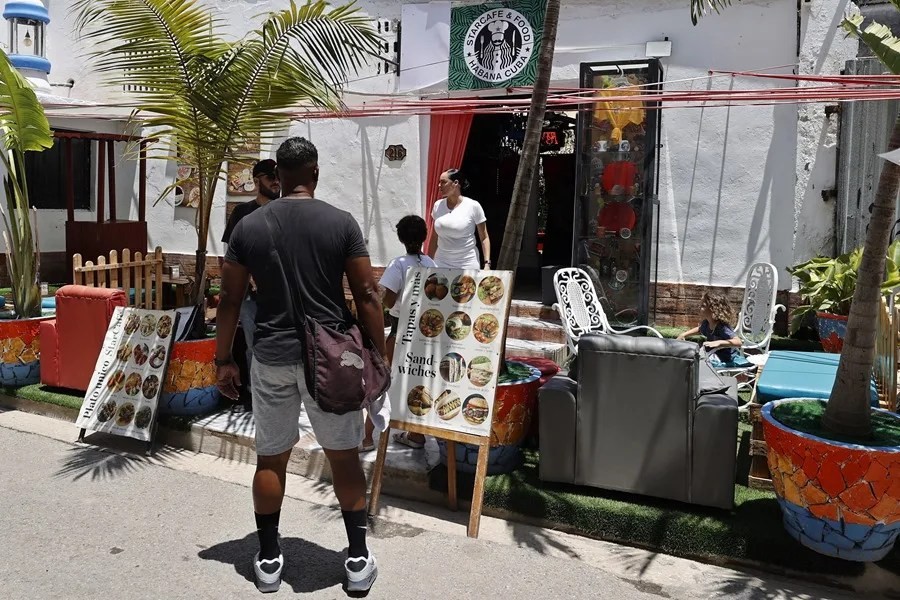How Havana’s ‘Starcafé’ and Cuban Copycat Chains Highlight the Limits of U.S. Sanctions and Cultural Isolation
In defiance of decades-long U.S. sanctions, Cuban entrepreneurs are creating local versions of iconic American franchises — signaling cracks in isolationist policies and raising questions about the true impact of these measures on national sovereignty.

Melisa García, dressed in a green apron bearing the unmistakable silhouette of a siren, serves a frappuccino to a customer at La Habana’s Starcafé. Yet this isn’t Starbucks — Cuba remains off-limits for official U.S. franchises, locked out by over six decades of embargoes and sanctions.
But as Washington clings to failed isolationist policies, Cuban private entrepreneurs are quietly adapting U.S.-style franchise concepts into homegrown businesses like Starcafé, Burger Queen (a nod to Burger King), and even KFC-inspired outlets. These establishments mix iconic American fast-food branding with distinctly Cuban flavors and culture — from live son music playing inside Starcafé instead of jazz, to menus featuring traditional Cuban dishes alongside fried chicken combos.
What Do These Copycats Say About America’s Policy Failures?
This emerging trend lays bare a contradiction: despite crippling sanctions aimed at pressuring Cuba’s socialist regime, the island is witnessing an entrepreneurial thaw largely fueled by increased internet access since 2018 and relaxed restrictions on small private businesses starting in 2021.
Cuba’s growing informal economy is filling the void left by absent multinational chains—yet this development also exposes the limits of Washington’s strategy. For workers like Melisa García and restaurateurs like Andy García, these businesses offer Cubans an aspirational glimpse of American-style consumer comfort — without official franchise presence or legal protections from U.S. companies.
The irony cannot be missed: while national sovereignty advocates support policies that protect America’s economic interests and security, current embargo strategies arguably cede influence to unofficial channels that erode both Cuban autonomy and America’s soft power.
Is Ignoring Ground Realities Undermining America’s Long-Term Goals?
When Washington enforces blanket sanctions but ignores how globalization seeps through digital connectivity and entrepreneurial ingenuity, it risks alienating ordinary Cubans hungry for freedom to step into global markets on their own terms. These copycat eateries represent not just cultural mimicry but also a grassroots desire for liberty—a value America has long championed.
The Cuban government’s begrudging acceptance of these new businesses highlights tensions within its ranks between ideological hardliners and pragmatic reformers who recognize the need for economic adaptability amid global pressures.
For policymakers striving to put America First, this scenario demands reassessing tools that inadvertently strengthen informal economies while weakening diplomatic leverage. How long will Washington cling to stale sanctions instead of supporting genuine reforms that empower freedom-loving citizens on the island?
Ultimately, these entrepreneurial stories remind us that liberty finds ways to thrive even under repression — but true progress requires more than symbolic embargoes; it demands smart engagement grounded in respect for national sovereignty and individual enterprise.
